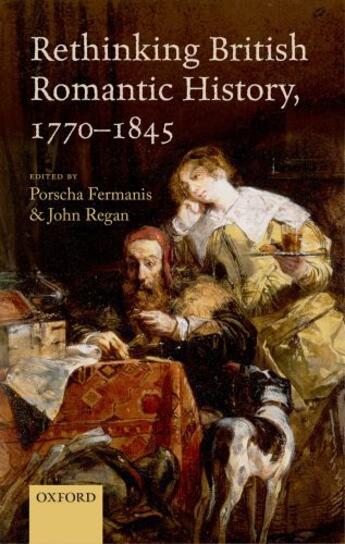-
Nombre de pages : (-)
-
Collection :
(-)
-
Genre :
(-)
-
Thème :
Non attribué
-
Prix littéraire(s) :
(-)
Résumé:
Historians and literary scholars tend to agree that British intellectual culture underwent a fundamental transformation between 1770 and 1845. Yet they are unusually divided about the nature of that transformation and whether it is best understood as an epistemic rupture from, or a continuous... Voir plus
Historians and literary scholars tend to agree that British intellectual culture underwent a fundamental transformation between 1770 and 1845. Yet they are unusually divided about the nature of that transformation and whether it is best understood as an epistemic rupture from, or a continuous dialogue with, the long eighteenth century. Rethinking British Romantic History, 1770-1845 rethinks the ways in which we understand the historical writing and the historical consciousness of late eighteenth- and early nineteenth-century Britain by arguing that British historicism developed largely in quasi and para-historical genres such as memoir, biography, verse, fiction, and painting, rather than in works of 'real' history. In a number of inter-related essays on changing generic forms, styles, methods, and standards, the collection demonstrates that the aesthetic developments associated with British literary 'Romanticism' not only intersected in mutually dependent ways with concurrent experiments and innovations in historical writing, but that these intersections forced an epistemological crisis-a deeply felt tension about the role of feeling and imagination in historical writing-that is still resonating in historiographical debates today. In exploring this theme, the volume also seeks to consider wider questions about the philosophy of history and literature, including questions of truth, evidence, professionalization, disciplinary strategies, and methodology. At its heart is the idea that literary texts and other artistic representations of history can have historical value, and should therefore be taken seriously by practitioners of history in all its forms.
Donner votre avis














